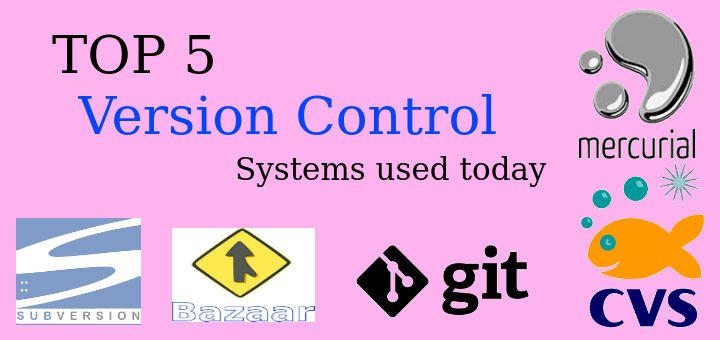Version control (also known as revision control or source control) refers to the management of changes that are made to documents or software source code etc. It is essential to keep track of all the changes that have been made to software to them more secure. With a version control system implemented, developers can simultaneously work on software without any conflict based on codes.
Normally its Systems admin role to implement a version control system & you might have wondered which software to choose as there are so many to choose from & with IT industry moving towards open source , what are the open source options for version control. In this article, we will be discussing 5 top open source version control system & in future articles, we would be discussing installation & configuration of these version control systems.
-
GIT
GIT, according to me, should be first on any such list. Created by Linus Torvalds, initially for development of Linux kernel but now is being used by organizations all around the world for commercial and public use. It is different from other version control systems on the list by the fact that it does not use any server-client system but rather uses a distributed system as every system directory acts as a full-fledged repository with complete history of changes. Only thing that can be said to be con for git is that it has steep learning curve & newcomers need to learn it a bit in order to use it.
-
Subversion or SVN
SVN is also another popular version control system that is being used by a number of open source projects like ruby, python, apache, source forge etc . It is easy to setup & administer, also provide fast & flexible update commits. There are number of clients available to use for various operating systems for using SVN. But like any other software its not perfect & has some limitations, like when it comes to speed it tends to be bit slower than other & there is a known bug relating to renaming files and folders.
-
CVS or Concurrent Versions System
It is the oldest open source version control system & uses a server client architecture, where a server holds the main copy of the software with all the revision history & client connects to server to check out code for making changes, then check-in code to commit the changes. It is one of the simplest version control system to learn & administer but it also has its fair share of problems. Problems like when a file’s name is changed or its moved, its not included in revision history; also it is very slow when it comes to tagging & branching operations. It also has very limited support for the binary files.
-
Bazaar
Bazaar, also called GNU Bazaar, is another famous version control system that is supported by Canonical. It is unique in one sense that, It has distributed as well as a centralized versioning control system i.e. clients acts as their own repository & it has a central server with main code also, but we can use any or both methods for version control. It has been known to provide a great friendly user experience & its easy to learn & master. Bazaar is also known to support a large number of third party tools as well as plugins.
Mercurial like git supports a distributed system for revision control system. Mercurial has been designed with keeping in mind the goals like scalability, high performance, distributed & decentralized system. Though created to be used for big projects but being similar to git, it can be employed for small projects as well. It is simple to learn & comes with extensive documentation. It also can be used via web interface, which makes it even further simple & easy to use.
Though there are other open source version control systems like Bitkeeper, Codeville, Fossil, Arx etc bit when it comes to top 5, the softwares mentioned above are certainly to look for.
If you think we have helped you or just want to support us, please consider these :-
Connect to us: Facebook | Twitter | Google Plus
Become a Supporter - Donate us some of you hard earned money: [paypal-donation]
Linux TechLab is thankful for your continued support.

“It is the oldest open source version control system” Actually, there was RCS before CVS.